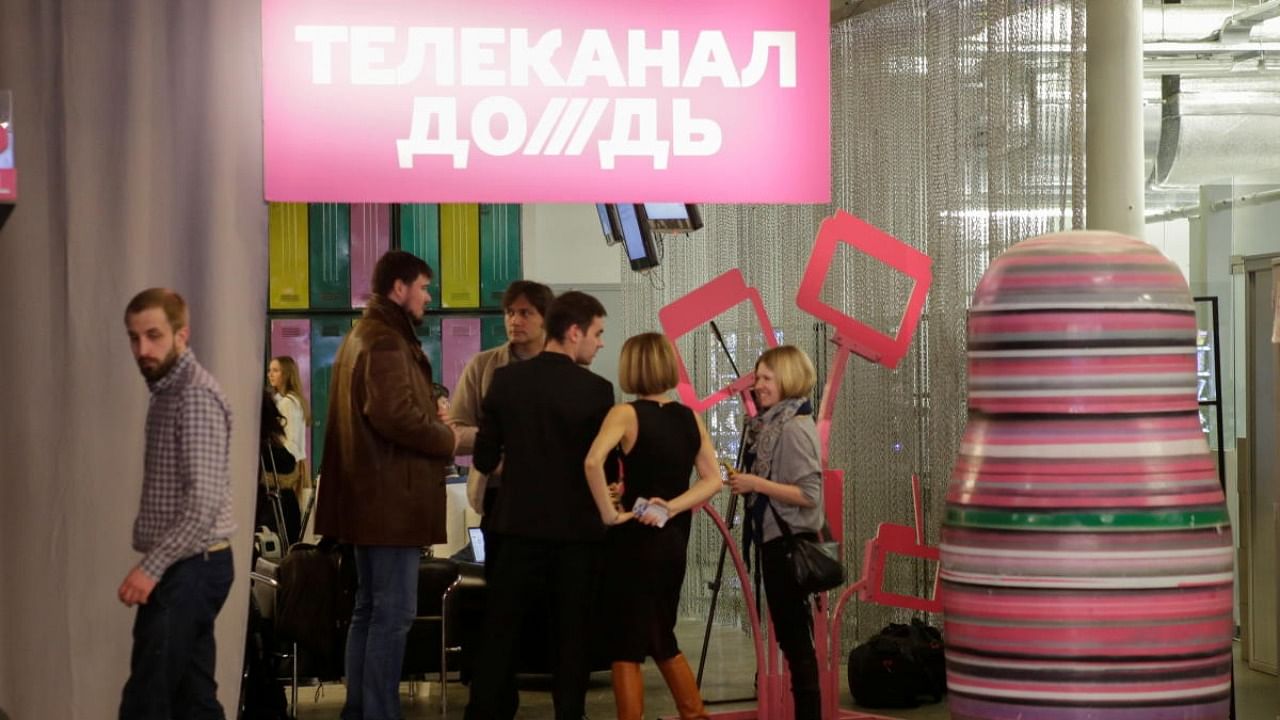
Russia on Friday added independent TV channel Dozhd (TV Rain) to a growing list of "foreign agent" media outlets as liberal organisations face mounting pressure in the country.
The channel first went on air in 2010 but was dropped by major cable providers four years later in what it called a campaign of intimidation.
It is now fully based online and is one of the few remaining media outlets that is critical of the government.
On Friday, Russia's justice ministry put Dozhd on its list of media organisations "carrying out the functions of a foreign agent".
"The Dozhd channel is not a foreign agent... it is a Russian media outlet," its editor-in-chief Tikhon Dziadko said on the messaging app Telegram.
The channel would appeal the decision "that contradicts the law and common sense," said Dziadko.
"Of course, we will continue to work as before," he said.
The Latvia-based investigative outlet iStories and its editor in chief Roman Anin and five other journalists were also slapped with the 'foreign agent' tag on Friday.
In May, police searched Anin's home and questioned him over a 2016 investigation into the alleged wealth of a Russian tycoon.
Organisations declared foreign agents must disclose sources of funding and label all their publications, including social media posts, with a tag or face fines.
The label can also be a deterrent for advertisers.
While Dozhd is subscription-based, ad revenues are an important source of funding for the channel.
The channel has received funding from the European Union since 2014, particularly for making programmes to promote European values in Russia, according to its management.
The justice ministry's decision Friday comes after several other independent news groups in Russia were recently outlawed or hit with the same label.
Two other respected independent media outlets -- Meduza, VTimes and The Insider -- have been branded foreign agents this year.
In July, investigative outlet Proekt was declared an "undesirable organisation" essentially banning its work in Russia under the threat of fines or jail time.
Russia has also blocked the websites of two media and one human rights groups linked to self-exiled Kremlin critic Mikhail Khodorkovsky.
Since Vladimir Putin came to power in 2000, Russia has been accused of suppressing all form of freedom of expression on television, but online media outlets have long been able to operate relatively freely.
However, as their audience has grown, especially among the younger generation, they in turn have subjected to crackdowns since the beginning of the year, coinciding with the return to Russia of Kremlin opponent Alexei Navalny, who has since been imprisoned.
In recent months, the Russian authorities have increased pressure on independent media, particularly in the run-up to September parliamentary elections.